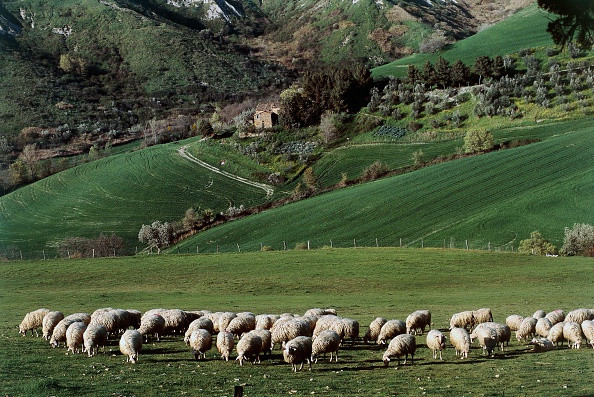Common fertiliser found to impact fertility potentially posing a risk to humans

Commonly used agricultural fertilisers pose a threat to human fertility, a study has found.
The research, published in Scientific Reports, was carried out on sheep grazed on land treated with human sewage sludge-derived fertiliser. It suggests that eating the sheep's meat could have a serious impact on pregnant women, and on the reproductive health of their future children.
The team of British and French scientists studied sheep exposed over 80 days to a common environmental chemical, sewage sludge-derived fertiliser. They looked at the development of ovaries in the sheep foetus, which resembles ovary development in humans.
The number of eggs in the ovary is determined when the foetus is still in the womb, and if the chemicals interfere with this process, this may have a long-term effect on the animal's future ability to reproduce.
Less eggs in the ovary
In the foetuses exposed to fertiliser, the scientists discovered that the number of eggs present in the ovary at birth was significantly lower than for others who had only been in contact with inorganic fertiliser. This reduction in the number of eggs was observed even when the exposure was limited in time and even if it was only during early gestation.
Sudden exposure during mid and late gestation had the worse impact on the ovary development, with a further reduction in the number of eggs, and a greater alteration of the genes and proteins in the ovary.
"The biggest effects on the foetal ovary were seen when the sheep were switched to sewage sludge fertilised fields in the last two to three months of pregnancy (...) this suggests that changing exposures to chemical mixtures may be worse than always being exposed to these mixtures", says Pr Paul Fowler of the University of Aberdeen, coordinator of the study.
Human fertility could be affected
These findings are not only interesting to understand the impact of fertiliser on animals. They could potentially hold big consequences for humans too.
Lead author Dr Richard Lea, from the University of Nottingham, says that because even low-level of chemical exposure poses a threat to human fertility, eating meat from animals exposed to the fertiliser may be concern. "We eat meat from the sheep so we might be exposed in that way to the chemicals. There is a chance that similar effects observed in the animals could be observed on human fertility. However, our idea is only to raise awareness to potentially reduce the use of such chemicals, not to stop eating meat", he told IBTimes.
© Copyright IBTimes 2025. All rights reserved.






















